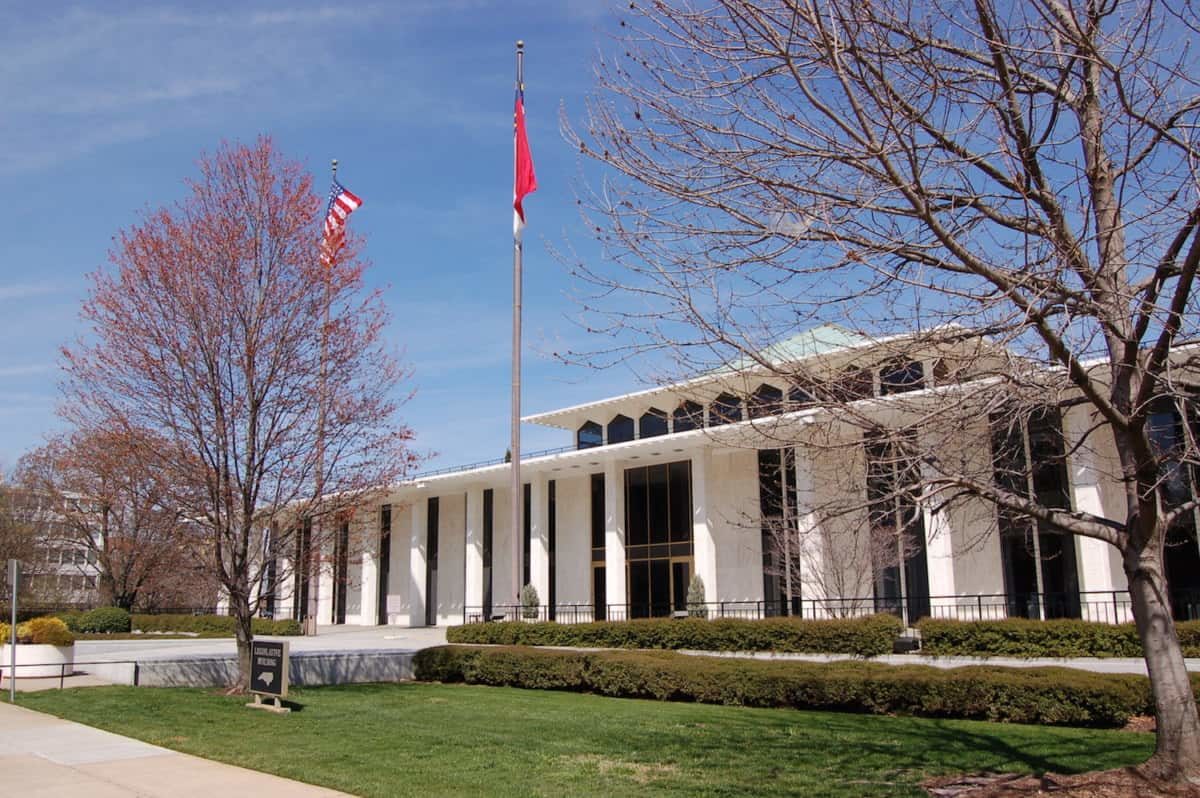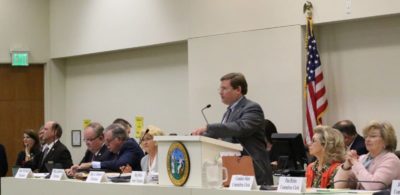

The North Carolina House of Representatives passed its 2016 budget — a revision to the budget bill passed during the 2015 long session — yesterday morning. The vote was 103-12.
There weren’t many big changes to the education portion of the budget, but there were a couple of standout amendments related to virtual charter schools.
The original revised education budget included a change to the acceptable withdrawal rates at North Carolina’s two virtual charter schools (note that the virtual charter schools are separate and distinct from the North Carolina virtual public school). Previously, the virtual charters had to maintain a student withdrawal rate under 25 percent each school year. The change in the revised education budget moved that limit up to 35 percent. See our coverage of the revised budget that passed House Education Appropriations last week here. See our coverage of the revised budget that passed the full House Appropriations Committee earlier this week here.
The change in the withdrawal rate limit is controversial because the virtual charters have been experiencing relatively high withdrawal rates since they launched. Billy Ball at NC Policy Watch has been reporting on the issue.


He wrote that more than 25 percent of students dropped out of the online school North Carolina Connections Academy in its first five months. The other virtual charter school, North Carolina Virtual Academy, experienced about 26 percent withdrawal in the same time period.
Changing the limit to 35 percent essentially gets those schools out of hot water.
But during the full House debate Wednesday, Rep. James Langdon, R-Johnston, put forth an amendment to move that withdrawal rate back to 25 percent. The amendment also stripped some of the limitations on which types of students could be counted toward the withdrawal rates. Langdon’s amendment passed by a narrow margin: 59-56. See the vote count here.
Later in the day, Rep. Rob Bryan, R-Mecklenburg, put forth his own amendment to Langdon’s amendment. His amendment kept the 25 percent withdrawal limit, but restored some of the limitations on which types of students could be counted toward the withdrawal rates.


Those limitations include:
- Not counting students who expressed the intent “prior to enrollment of only being enrolled for a finite period of time within the school year.”
- Not counting students who “regularly” fail “to participate in courses” and, as a consequence, are “withdrawn from enrollment.”
- Not counting students “no longer qualified under the laws of this State for admission to a public school in North Carolina, including due to the student relocating to another state.”
- Not counting students who withdraw “from the school for a family, personal, or medical reason and (ii) notifies the school of the reason for withdrawal.”
- Not counting students who withdraw “from the school within the first 30 days following the date of the student’s enrollment.
Bryan’s bill passed narrowly: 65-50. See the vote count here.


